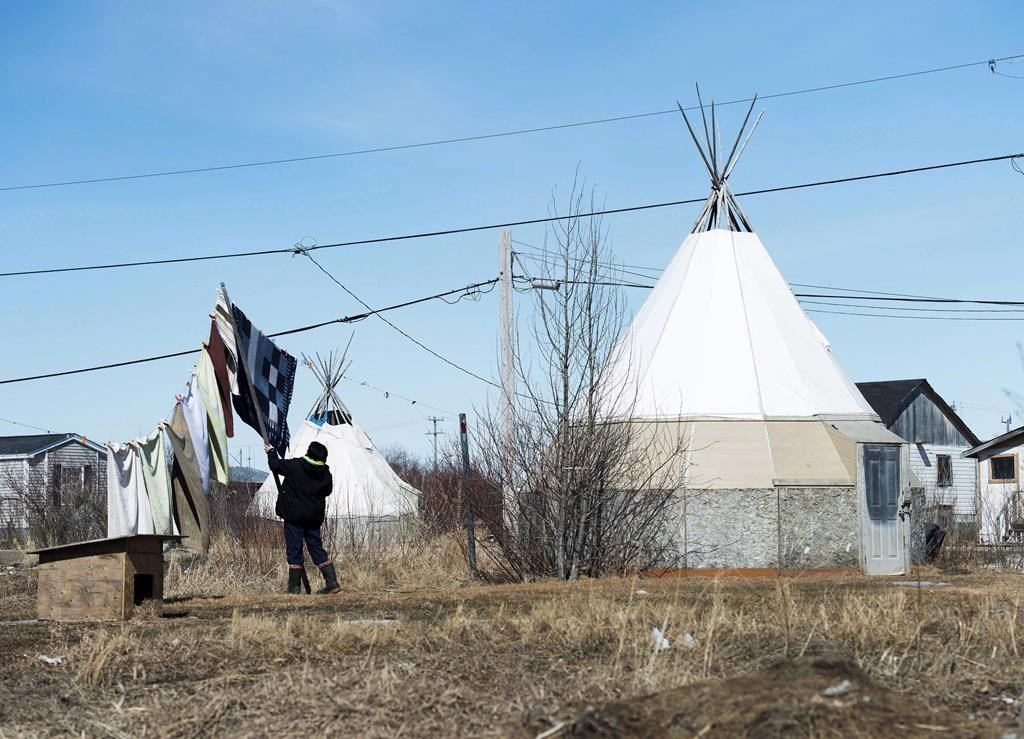Indigenous Communities' Well-being: Seeking Solutions
"[Indigenous communities struggle with perpetual and] extremely high [rates of food insecurity, with a dramatic effect on health]."
"[Higher prices for healthy food in rural and remote communities compared to urban centres place healthy food] beyond the reach of many families."
"[Governments must] urgently address systemic problems relating to food, nutrition and the environment [affecting First Nations communities]."
"This is not just a First Nations community problem [pharmaceuticals present in surface-water bodies close to First Nations communities], this is really a Canada-wide issue. We are seeing more and more pharmaceuticals in surface water in many watersheds."
Report: First Nations Food, Nutrition and Environment Study
"Traditional food is still of much better quality than the market food that is available to First Nations in most communities."
"The traditional food system is very important for health reasons, and obviously, for cultural reasons."
"The study shows that it's an ecosystemic problem, that there are issues that have to do with the ecosystem, with the way we access traditional food, with the health of the species that people would like to harvest -- but it's up to governments at different levels to recognize the rights of Indigenous peoples, in this case First Nations, to access traditional food in a healthy environment."
Malek Batal, study lead investigator, University of Montreal
| Cambridge Bay Wellness Centre events. (PHOTO BY JANE GEORGE) |
The final report released this week as part of a national Indigenous food and health forum in Ottawa has been under study for a full decade and the final draft contains what is considered to be the first comprehensive study of diet and nutrition patterns among Canada's Indigenous population. As well, the study considers the role of traditional food and related health outcomes, focusing on whether the available food and water being consumed is safe for these communities.
The critical findings' conclusion that Indigenous communities struggle with "extremely high" food insecurity having an impact on residents' health outcomes is a perpetual problem. It was pointed out that fully 48 percent of households in First Nations communities experience difficulties accessing sufficient food for their meals. Those households lacking income meant to cover food costs, the definition of food insecurity, is reported as higher among First Nations than among the general population.
The national food insecurity rate stands at 8.4 percent. Predictably, people living in remote communities lacking year-round access to a service centre reported significantly higher food insecurity rates. Hardly surprising, when food, including fresh fruits and vegetables must be flown in at high cost to supply remote communities unable to grow their own, and highly dependent on bringing in food from production centres. Unsurprisingly, costs will be elevated as a reflection of availability.
Indigenous First Nations communities claim to want to live in culturally and historically appropriate venues which tend to be isolated and remote communities. Citing living as their forefathers did as a cultural bonus and quality of life issue, including hunting and fishing as has been done traditionally, requires capability and knowledge of that way of life. Fewer remote-dwelling Indigenous groups, however, are able to or willing to exert themselves as did their predecessors who themselves underwent periods of food scarcity.
Choosing to live in remote geographies, isolated from larger non-Indigenous communities results in many kinds of hardships, from the level of education available to Indigenous children on reserves, to more sophisticated and technical health care delivered by health professionals unavailable save for more basic health-care delivery within the communities. As for traditional food availability having been replaced by imported processed foods, it is little wonder that health suffers.
To the extent that 82 percent of all Indigenous adults are now seen to be overweight or obese, reflecting in part a health affliction seen by the general population as well, but magnified in numbers.
One fifth of these communities suffer from diabetes, double and triple the rates of the national averages, though they too are increasing. Tellingly, smoking rates are also seen to be quite a bit higher than elsewhere. Alcohol and drug abuse are problems in Indigenous communities just as they are elsewhere in the country, but the study fails to address that issue.
One of the study's lead investigators, Malek Batal, claims these findings indicate more must be done to remove barriers in access to traditional food for the purpose of addressing disproportionately high rates of First Nations food insecurity and the chronic diseases that follow. With the intake of traditional food, it was noted nutrition and diet quality are improved -- as they would be anywhere else. Indigenous adults point out that the harvesting of traditional food has been more difficult given industrial activities and climate change.
The study fund mostly normal ranges of contaminants in traditional foods such as fish and game. High levels of lead were discovered in some meat sources like bison, moose and birds, and they are attributable to the use of lead-based ammunition used for hunting purposes Among some women in northern areas who consume pike and walleye higher mercury intakes were identified. As was pharmaceuticals present in surface water bodies close by First Nations communities. Again, as reflected elsewhere.
 |
| An indigenous women takes down laundry in the northern Ontario First Nations reserve in Attawapiskat, Ont., on April 19, 2016. File photo by The Canadian Press/Nathan Denette |
Labels: Canada, Health, Impoverishment, Indigenous Communities, Nutrition
0 Comments:
Post a Comment
<< Home